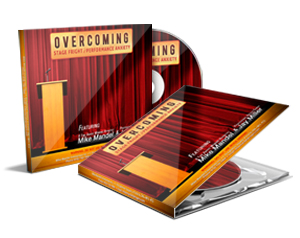Presentation Skills
Tips Versus Training
Former basketball coach and Hall of Famer, Bob Knight, once said, “Everyone wants to be on a winning team, but no one wants to come to practice.” That’s probably true with regard to presentation skills, as well. Everyone wants to be a good presenter, but few people want to do the work it requires. And the endless demand for presentation tips reinforces that conclusion.
If you’re serious about developing good presentation skills, you need to move beyond tips and tricks. You need training. What’s the difference? A tip is a useful hint or idea from an expert. Training is a systematic process of acquiring knowledge, skill and ability.
Tips are appealing because they’re easy. But presenting isn’t easy, even though good presenters make it look easy. You must be willing to work hard and struggle a bit if you’re going to learn effective presentation skills. Training happens at the edge of your comfort zone. It will teach you how to perform well, even under pressure.
Presentation tips are appealing because they’re simple. But presenting isn’t simple. It’s a highly complex task requiring a wide range of skills. Relying on a tip is like bringing a pencil when the job requires a computer. Training gives you a comprehensive set of presentation skills so you can perform successfully in a variety of circumstances.
Tips seem to offer a fast way to improve. But effective presentation skills aren’t acquired quickly. No one masters an instrument in fifteen minutes. All skill development takes time. Training provides time for you to learn and integrate new skills, to replace old ineffective habits with new ones. And really, what is six months in the context of your entire career?
Tips are appealing because they’re free—but you get what you pay for. Presentation tips can’t make you a great speaker any more than tricks make you a good magician. Training costs more, but it’s exponentially more valuable. Strong presentation skills are worth thousands of dollars to you, in terms of future sales, promotions and earning potential. Be prepared to invest in yourself and in your future.
Tips are appealing because they’re accessible. Presentation tips aren’t hard to find, hundreds of them are just a mouse-click away. But they’re random, generic and not always reliable. Good presentation skills training is individualized, very systematic and customized to address your unique requirements. It’s worth going the extra mile to find and work with an expert presentation skills coach.
When you want to develop a new skill, you probably ask yourself several questions. How important is this for me? How much time will it take? How much effort will it require? How much will it cost? And will it deliver the results? At first glance, making use of presentation tips and tricks might be tempting. They’re simple, plentiful, easy to understand and implement, and they’re free.
But a systematic and comprehensive training program with an expert will always deliver better results. Training provides you with a reliable set of presentation skills that will continue to serve you, personally and professionally, for many years to come.
 The Sound of Success
The Sound of SuccessEnroll in this FREE video mini course and discover a powerfully attractive voice.
 Your Confident Voice
Your Confident VoiceThis 145-minute mp3 download is a complete speaking voice course. The simple but amazingly effective program is on sale this month!
 Overcoming Stage Fright
and
Overcoming Stage Fright
andPerformance Anxiety
On this mp3 download, Jay Miller teams up with six-time award-winning hypnotist Dr. Mike Mandel to deliver the most comprehensive program available for reducing or eliminating stage fright.